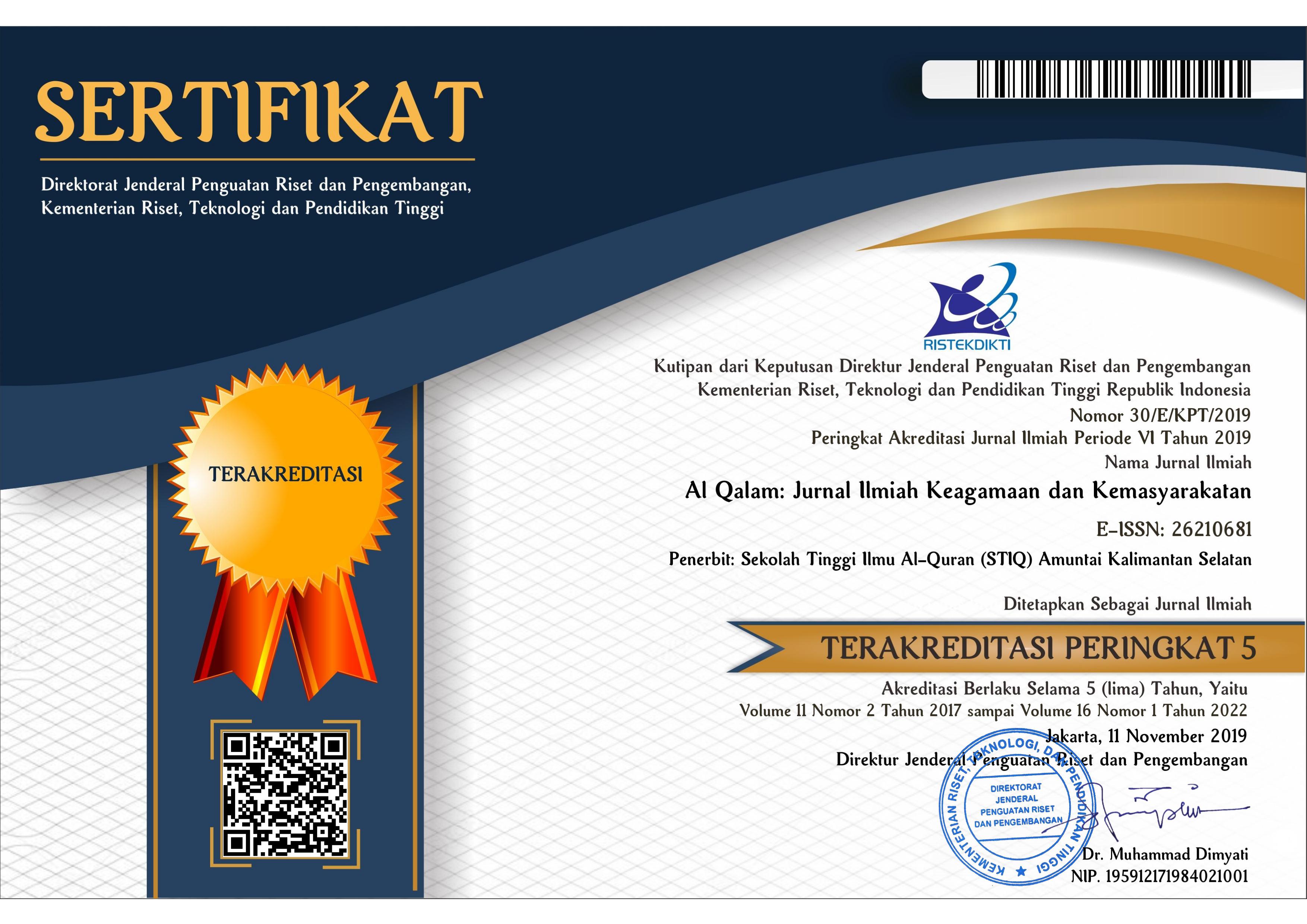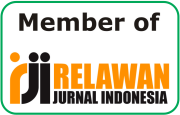Corporate Culture and Employee Performance: The Role of Vision, Mission, Norms, and Employee Focus
Abstract
Keywords
Full Text:
PDFReferences
Abraham, M., Kaliannan, M., Avvari, M. V, & Thomas, S. (2023). Reframing talent acquisition, retention practices for organisational commitment in Malaysian SMEs: A managerial perspective. Journal of General Management, 0(0), 1–13. https://doi.org/10.1177/03063070231184336
Agustina, L., & Samsyir. (2022). The Effect of Career Development, Integrity, and Work Motivation on Employee Performance. Jurnal Ilmiah Ilmu Administrasi Publik: Jurnal Pemikiran Dan Penelitian Administrasi Publik, 12(2), 247–256. https://ojs.unm.ac.id/iap/article/download/35238/16870
Akter, S. (2020). Companies’ vision, mission, and core values focus on human resource management. International Journal of Financial, Accounting, and Management, 2(4), 343–355. https://doi.org/10.35912/ijfam.v2i4.412
Alkhodary, D. A. (2023). Exploring the Relationship between Organizational Culture and Well-Being of Educational Institutions in Jordan. Administrative Sciences, 13(3), 92. https://doi.org/10.3390/admsci13030092
Al-Suraihi, W. A., Samikon, S. A., Al-Suraihi, A.-H. A., & Ibrahim, I. (2021). Employee Turnover: Causes, Importance and Retention Strategies. European Journal of Business and Management Research, 6(3), 1–10. https://doi.org/10.24018/ejbmr.2021.6.3.893
Anderson, N., Potočnik, K., & Zhou, J. (2014). Innovation and Creativity in Organizations. Journal of Management, 40(5), 1297–1333. https://doi.org/10.1177/0149206314527128
Assbeihat, J. M. (2016). The Impact of Collaboration among Members on Team’s Performance. Management and Administrative Sciences Review, 5(5), 248–259. https://www.researchgate.net/publication/311811209
Bisbey, T. M., Kilcullen, M. P., Thomas, E. J., Ottosen, M. J., Tsao, K., & Salas, E. (2021). Safety Culture: An Integration of Existing Models and a Framework for Understanding Its Development. Human Factors: The Journal of the Human Factors and Ergonomics Society, 63(1), 88–110. https://doi.org/10.1177/0018720819868878
Farida, I., & Setiawan, D. (2022). Business Strategies and Competitive Advantage: The Role of Performance and Innovation. Journal of Open Innovation: Technology, Market, and Complexity, 8(3), 1–16. https://doi.org/10.3390/joitmc8030163
Henkel, T., Ade, A. M., & Schmid, C. (2023). The Necessity for Advancing Supportive Professional Communication in the Workplace. Business and Professional Communication Quarterly. https://doi.org/10.1177/23294906231206097
Iskamto, D. (2023). Organizational Culture and Its Impact on Employee Performance. International Journal of Management and Digital Business, 2(1), 47–55. https://doi.org/10.54099/ijmdb.v2i1.584
Junça Silva, A., & Dias, H. (2023). The relationship between employer branding, corporate reputation and intention to apply to a job offer. International Journal of Organizational Analysis, 31(8), 1–16. https://doi.org/10.1108/IJOA-01-2022-3129
Khandelwal, K. A., & Mohendra, N. (2010). Espoused Organizational Values, Vision, and Corporate Social Responsibility: Does it Matter to Organizational Members?</i>. Vikalpa: The Journal for Decision Makers, 35(3), 19–36. https://doi.org/10.1177/0256090920100302
Kim, J., & Jung, H.-S. (2022). The Effect of Employee Competency and Organizational Culture on Employees’ Perceived Stress for Better Workplace. International Journal of Environmental Research and Public Health, 19(8), 4428. https://doi.org/10.3390/ijerph19084428
Lam, L., Nguyen, P., Le, N., & Tran, K. (2021). The Relation among Organizational Culture, Knowledge Management, and Innovation Capability: Its Implication for Open Innovation. Journal of Open Innovation: Technology, Market, and Complexity, 7(1), 66. https://doi.org/10.3390/joitmc7010066
Metz, D., Ilieș, L., & Nistor, R. L. (2020). The Impact of Organizational Culture on Customer Service Effectiveness from a Sustainability Perspective. Sustainability, 12(15), 6240. https://doi.org/10.3390/su12156240
Osborne, S., & Hammoud, M. S. (2017). Effective Employee Engagement in the Workplace. International Journal of Applied Management and Technology, 16(1), 50–67. https://doi.org/10.5590/IJAMT.2017.16.1.04
Palumbo, R., & Douglas, A. (2024). The secret ingredient? Uncovering the effect of organizational culture on quality management: a literature review. International Journal of Quality & Reliability Management, 41(1), 195–268. https://doi.org/10.1108/IJQRM-03-2023-0077
Radu, C. (2023). Fostering a Positive Workplace Culture: Impacts on Performance and Agility. In Human Resource Management - An Update [Working Title]. IntechOpen. https://doi.org/10.5772/intechopen.1003259
Rasool, S. F., Wang, M., Tang, M., Saeed, A., & Iqbal, J. (2021). How Toxic Workplace Environment Effects the Employee Engagement: The Mediating Role of Organizational Support and Employee Wellbeing. International Journal of Environmental Research and Public Health, 18(5), 2294. https://doi.org/10.3390/ijerph18052294
Schroeder, D., Chatfield, K., Singh, M., Chennells, R., & Herissone-Kelly, P. (2019). The Four Values Framework: Fairness, Respect, Care and Honesty. In Equitable Research Partnerships (pp. 13–26). SPRINGER. https://doi.org/10.1007/978-3-030-15745-6_3
Shahid, A., & Azhar, S. M. (2013). Gaining Employee Commitment: Linking to Organizational Effectiveness. Journal of Management Research, 5(1), 250. https://doi.org/10.5296/jmr.v5i1.2319
Sypniewska, B., Baran, M., & Kłos, M. (2023). Work engagement and employee satisfaction in the practice of sustainable human resource management – based on the study of Polish employees. International Entrepreneurship and Management Journal, 19(3), 1069–1100. https://doi.org/10.1007/s11365-023-00834-9
Wang, S., & Huang, L. (2022). A Study of the Relationship between Corporate Culture and Corporate Sustainable Performance: Evidence from Chinese SMEs. Sustainability, 14(13), 7527. https://doi.org/10.3390/su14137527
Yang, T., Jiang, X., & Cheng, H. (2022). Employee Recognition, Task Performance, and OCB: Mediated and Moderated by Pride. Sustainability, 14(3), 1631. https://doi.org/10.3390/su14031631
Zeb, A., Akbar, F., Hussain, K., Safi, A., Rabnawaz, M., & Zeb, F. (2021). The competing value framework model of organizational culture, innovation and performance. Business Process Management Journal, 27(2), 658–683. https://doi.org/10.1108/BPMJ-11-2019-0464
Zhenjing, G., Chupradit, S., Ku, K. Y., Nassani, A. A., & Haffar, M. (2022). Impact of Employees’ Workplace Environment on Employees’ Performance: A Multi-Mediation Model. Frontiers in Public Health, 10, 1–13. https://doi.org/10.3389/fpubh.2022.890400
DOI: http://dx.doi.org/10.35931/aq.v18i4.3572
Refbacks
- There are currently no refbacks.
Copyright (c) 2024 Hizbul Khootimah Az-zaakiyyah, Abu Muna Almaududi Ausat, Suherlan Suherlan

This work is licensed under a Creative Commons Attribution 4.0 International License.
Al Qalam: Jurnal Ilmiah Keagamaan dan Kemasyarakatan
index by:
Publish by:
Sekolah Tinggi Ilmu Al-Qur'an Amuntai
Contact us:
Address: Jl. Rakha Pakapuran, Amuntai Utara
Kabupaten : Hulu Sungai Utara
Kode Pos : 71471
Provinsi : Kalimantan Selatan
Telephone : 085251613000
Email: hafizhihusinsungkar@gmail.com

This work is licensed under a Creative Commons Attribution 4.0 International License


